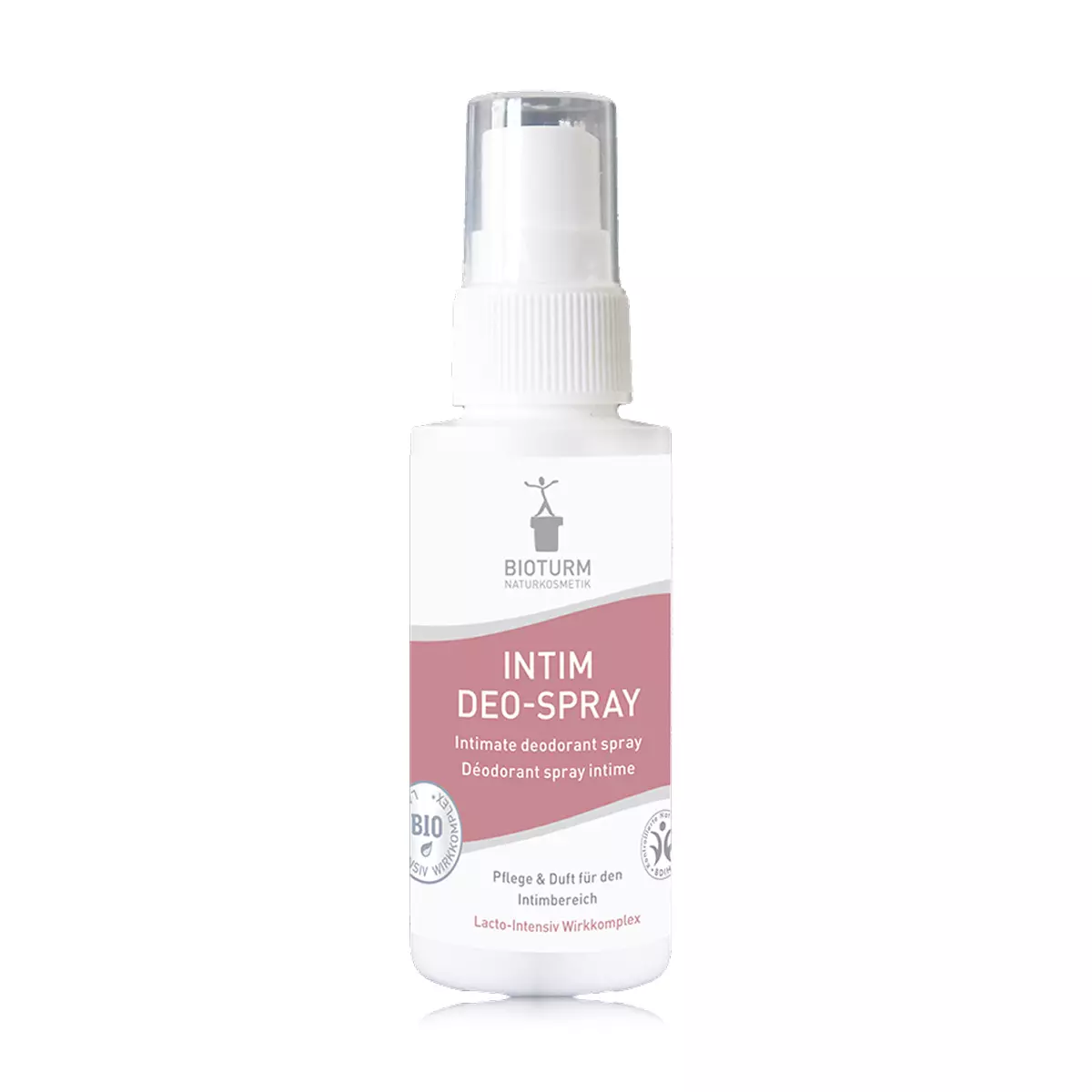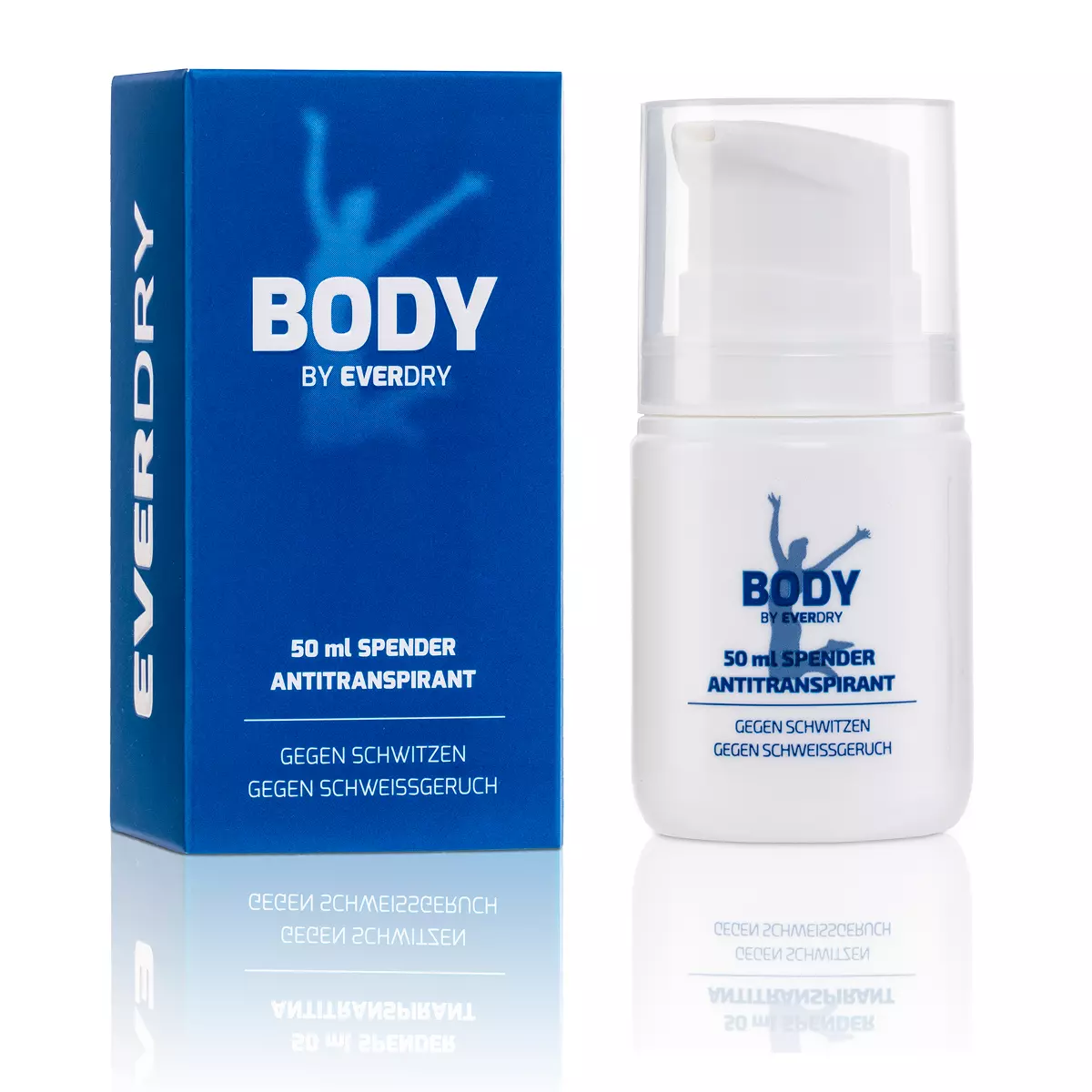- Antiperspirants
- Shirts, Socks, Pads
- Iontophoresis
- Anti-odour
- All Products
-
Guide
- Interesting facts about sweating
- Tips and tricks
- The most common sweating triggers
-
Sweating from head to toe
- Safety of aluminum
- How antiperspirant works
- Antiperspirant - Deodorant: what helps
- manjana undershirts
- Sweating on the head
- Sweating under the armpits
- Sweating on the face
- Sweating on the feet
- Sweating on the chest
- Sweating on the hands
- Antiperspirant not effective
- Sweating in the neck, back, body
- Sweating in the intimate area
- PETA Certified
Quick Summary: Key Points
Sweating Down There: Causes and Solutions
This piece takes a look at heavy sweating in the intimate area, a rather unpleasant issue that can be triggered by all sorts – hormones, getting active, or stress, for instance. The result is often whiffy odours, skin irritation, and a higher chance of infections. This text offers some handy tips for relief, such as choosing the right undies, using antiperspirants, and keeping things clean and tidy down below.
The Genital Area – Our Most Sensitive Body Zone
It's completely normal to sweat in this body region, as there are, of course, many sweat glands in the genital area. They perform important functions on and around the genitals, such as cooling the body, protecting the skin, and providing immune defense. However, increased perspiration in this intimate body area is particularly uncomfortable for many people. The warm, moist skin climate can easily lead to the growth of bacteria, which, along with the sweat, causes an unpleasant odor. As a result, many people feel severely restricted in their daily lives. It is often so embarrassing that they feel ashamed and won't even talk about the problem with their partner or doctor.
Problems Caused by Excessive Sweating in the Genital Area
There are various triggers for excessive sweating in the genital area, and the causes of increased perspiration are diverse. These can include hormonal changes (e.g., pregnancy or menopause), high heat, increased exertion, or even a form of hyperhidrosis. Put a stop to sweating between your legs and avoid unpleasant odors and infections in this sensitive area. The following 3 problems can occur particularly frequently with excessive sweating in the genital area:
- Eczema
Whether it's a woman's genital region or a man's groin area, the constant moisture caused by sweating can quickly lead to eczema. This inflammation is usually triggered by a yeast fungus or a bacterial infection, which often requires medication to treat. Signs of such a "sweat eczema" include itching, reddened skin, blisters, or greasy scales. - Psychological Distress
Itching, noticeable sweat stains, or a disturbing body odor are usually side effects of excessive sweating in the genital area. People deal with it differently, but all quickly suffer from the unpleasant situation. Many withdraw and avoid public sports or physical intimacy. This has a negative impact on their mental well-being and relationships, and their personal distress increases. - High Risk of Bacterial Infections
The skin in the genital area is particularly sensitive, and increased sweating quickly creates a warm, moist skin environment. Such an environment destroys the skin's barrier, allowing bacteria and fungi to thrive and increasing the risk of a bacterial infection.
To reduce distress and avoid health risks, it is important to reduce sweating between the legs.
6 Tips for Sweating in the Genital Area
Sweating in the genital area is not uncommon, and those affected should not suffer in silence but instead tackle the problem effectively. We have put together a few tips to help you combat sweating in this sensitive body region:
Remove Pubic Hair
While shaving doesn't reduce the amount of sweat, the odorless sweat can't break down as quickly on smooth, hair-free skin, which reduces unpleasant odor. By having a hair-free genital area, you can effectively minimize the development of odor. To protect the skin and avoid inflammation when shaving, you should always shave in the direction of hair growth. If you don't like to be completely bare, it's often enough to trim the pubic hair short with small scissors.
Antiperspirant
By applying an antiperspirant, sweat pores are narrowed, effectively regulating the increased sweat production and preventing the development of a bothersome odor. Control sweat and odor in your intimate area with a specialized product for the genital area. Please take care to generously avoid mucous membranes during application. For these sensitive areas, we recommend our antiperspirant in a dispenser. Thanks to its gentle lotion base, it is particularly suitable. You will achieve positive results after just 2-3 days.
By the way: Studies prove that the use of an antiperspirant with aluminum salts is both highly effective and, on intact skin, absolutely safe for health. Read the statement from the German Federal Institute for Risk Assessment (BfR), which is based exclusively on scientific studies.
Proper Underwear
With the right "under," you can greatly influence sweat production in the genital area. While synthetic fibers or satin may look especially nice, they are poor at wicking moisture away, so unpleasant odors can develop more quickly. Cotton underwear is the better choice here for those affected. The material ensures that sweat is absorbed and wicked away. This can reduce odor in the intimate area. The same applies to your outer clothing – it should ideally be made of breathable materials and fit loosely.
Correct Sitting Posture
Please take a seat – but do it right! If you like to sit with your legs crossed frequently, it may be comfortable and look good, but this sitting position promotes sweat production in the genital area. Crossed legs restrict the breathability of clothing, and sweat in the genital area cannot evaporate optimally. Your intimate area becomes constricted and doesn't get "air," and a build-up of heat results. The body reacts with additional sweat production. Give your intimate area a little more room and try to sit with your legs slightly apart more often. And when the situation allows: sitting cross-legged is ideal.
Hygiene
Generally, it is completely sufficient to clean the intimate area once a day with lukewarm water and a gentle washing lotion. With excessive sweating in the genital area, frequent washing does not help. Increased showering and the intensive use of washing lotions are unfortunately counterproductive and only throw the intimate flora out of balance. Regularly changing your underwear, rather more often than necessary, is a more effective and gentle way to ensure a good feeling in the intimate area. The panties should then be washed in the machine at at least 60 degrees to ensure germs and bacteria have no chance.
Sage Tea
Enjoying a delicious cup of tea is always a good decision. How about sage tea? But wait! It not only works internally but can also be used externally. Simply dab the affected areas in the intimate region with the teabag. This old home remedy is powerful in the fight against odor-causing bacteria and also has an antibacterial effect, which can help prevent various infections.
First published: 12/05/2011
Updated: 27/05/2025
Updated: 27/01/2026

Content: 0.05 Liter (€185.00 / 1 Liter)

Content: 0.05 Liter (€398.00 / 1 Liter)


